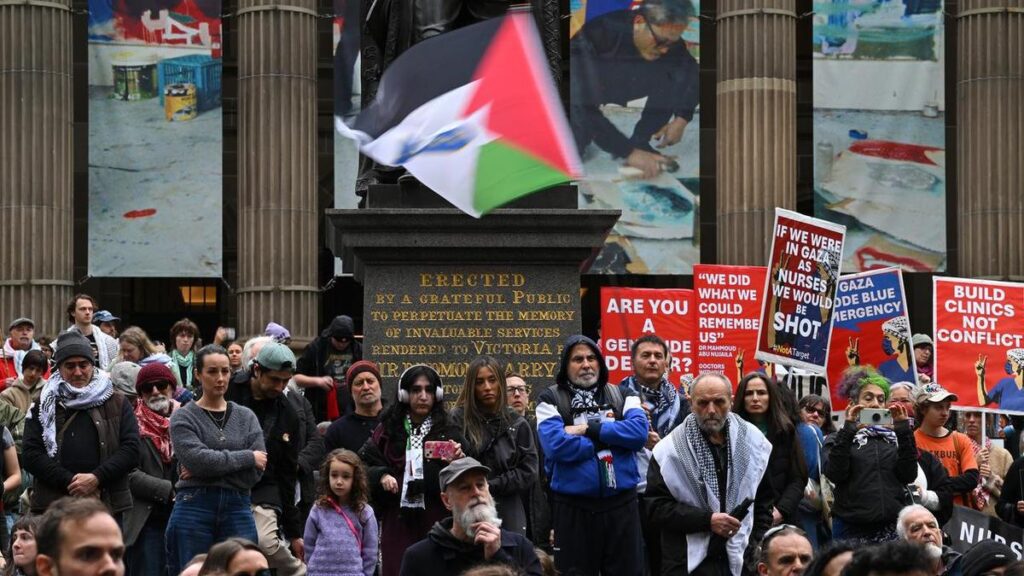
UPDATE: Australia has officially recognized the state of Palestine, a significant shift in foreign policy that could impact Middle Eastern stability. This announcement was made as Prime Minister Anthony Albanese arrived in the United States for a crucial United Nations General Assembly meeting on September 21, 2025.
The recognition, which took effect Sunday night, aligns Australia with over 140 United Nations member states and comes amid escalating humanitarian crises in Gaza. Albanese stated, “Australia recognizes the legitimate and long-held aspirations of the people of Palestine to a state of their own.”
This move is part of an urgent push for a two-state solution, as the ongoing violence in Gaza has intensified. Albanese and Foreign Minister Penny Wong emphasized that a ceasefire and the release of hostages held by Hamas are critical first steps toward peace. “Today’s act of recognition reflects Australia’s longstanding commitment to a two-state solution, which has always been the only path to enduring peace and security for the Israeli and the Palestinian peoples,” they said in a joint statement.
The Israeli government has reacted strongly, asserting that this recognition will destabilize the region further. “Israel will not accept any detached or imaginary text that attempts to force it to accept indefensible borders,” stated the Israeli Foreign Ministry on social media platform X. Critics within Australia, including Opposition Leader Sussan Ley, condemned the decision as a hollow gesture that could embolden Hamas.
In the backdrop of these developments, a group of Republican Congress members in the U.S. has warned Albanese and his allies that proceeding with recognition might lead to punitive measures from the U.S., traditionally an ally of Israel. Albanese’s recognition of Palestine complicates his diplomatic relations, especially as he seeks a meeting with former President Donald Trump during this visit.
The Australian government has also noted that for a Palestinian state to be viable, the Palestinian Authority—which governs the West Bank—must commit to recognizing Israel’s right to exist and enacting key reforms. Meanwhile, pro-Palestine demonstrations have surged across Australia, with activists calling for more substantial actions against Israel.
As the situation evolves, the international community will be watching closely. The implications of this recognition are profound, potentially reshaping diplomatic relationships and affecting ongoing peace negotiations in a region plagued by conflict.
Stay tuned for updates on this developing story and its impact on global politics.





